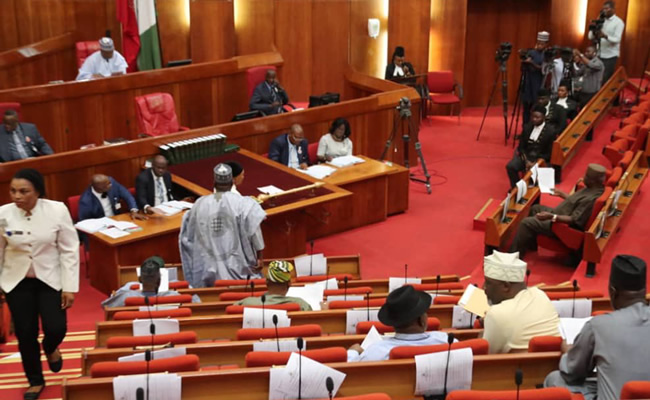Public servants to run private businesses as NASS moves to ammend CCB Act

The Federal House of Representatives has commenced amendment of the Code of Conduct Bureau and Tribunal Act geared towards allowing public servants own and run other private businesses besides farming that is already permitted by the law.
Daily Times also gathered that the House may also dislodge the control of the CCB and CCT from the Presidency to the National Judicial Council, while the Federal Judicial Service Commission would now recommend chairmanship of the bureau, pending the approval of the NJC.
These proposals are contained in the Code of Conduct Bureau and Tribunal Bill, 2019, sponsored by the lawmaker representing Andoni/Opobo/Nkoro Federal Constituency of Rivers State, Awaji-Inombek Abiante.
The lawmaker recounted that the Presidency had, between 2015 and 2019 used the CCB and CCT to hound former Senate President, Dr Bukola Saraki.
Abiante also held that allowing public servants to farm and not engage in other business ventures was unreasonable, arguing that a sizeable section of the country is dominated by farmers while other sections are business-minded.
He posited that those with vast knowledge on Information and Communication Technology, which could add value to the economy, have been prevented from pitching in valuable contributions due to the current law.
According to Abiante, the law is already being breached as security operatives and civil servants are usually seen using their personal vehicles as taxis to and fro their workplaces.
The bill, which passed second reading at the House on March 17, 2020, particularly seeks to amend Sections 6, 20(4) and 22(3) of the CCB and T Act.
For instance, Section 6 reads, “Restrictions on specified officers: Without prejudice to the generality of Section 5 of this Act, a public officer shall not (a) receive or be paid the emoluments of any public office at the same time as he receives or is paid the emoluments of any other public office; or (b) except where he is not employed on a full-time basis, engage or participate in the management or running of any private business, profession or trade; but nothing in this paragraph shall prevent a public officer from engaging in farming or participating in the management or running of any farm.”
READ ALSO: Why I fell out with Oshiomhole- Obaseki
Abiante, in his argument held that the Code of Conduct Bureau and Tribunal were established to “maintain a high standard of morality in the conduct of government business and to ensure that the actions and behaviour of public officers conform to the highest standards of public morality and accountability, and impose punishment on erring public officers.”
“Public service, either at the local, state or federal level can boast of officers with great professional acumen who can use their experience during their free periods to enhance the socio-economic development of this country, but are denied through the restrictions placed on them in consideration of the principal Act.
“Also, in order to remove political interference in the activities of members of the Code of Conduct Tribunal, there is a need to amend the sections that deals with their appointment and removal.”
Abiante explained that the proposed amendment seeks to eliminate “the restriction placed on public officers from engaging in any enterprise other than farming and breaking the prison walls of same as well as putting the appointment and removal of the chairman and members of the Code of Conduct Tribunal under the jurisdiction of the National Judicial Council.”
H consequently proposed that the existing Section 6 of the Act be erased and a new Section 6 inserted.
The new section, according to him, should read, “Restrictions on specified officers: (a) A public officer shall not receive or be paid the emoluments of any public office at the same time as he receives or is paid the emolument of any other public office.
“(b) Subject to Section 5 of the principal Act, a public officer may engage in any enterprise(s), provided there is no conflict of interest.”







